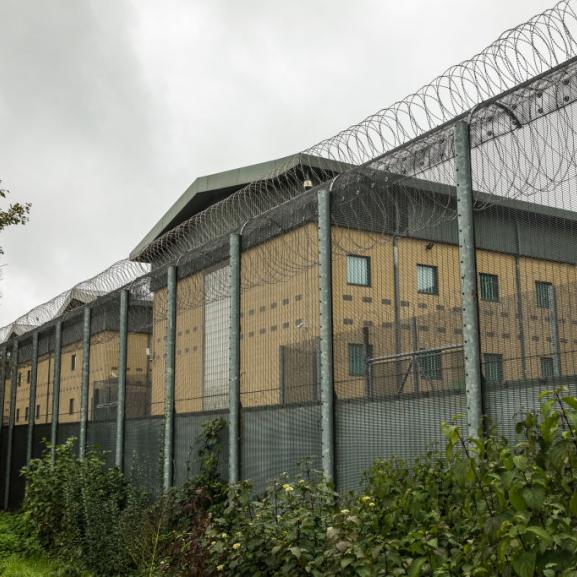New guidelines for heathcare professionals working in detention centres released
New guidelines for healthcare professionals working in immigration detention are being launched on 2 July. The publication aims to raise the standard of care for survivors of torture who are being held in detention centres. The guidance is the first of its kind and seeks to protect a group of vulnerable people within the immigration system.
Juliet Cohen, Freedom from Torture’s Head of Doctors, co-authored the report with Dr Peter Green from the Faculty of Forensic and Legal Medicine, which set up the working group for the standards. The Quality Standards have been reviewed by a range of organisations including the British Medical Association, the Royal College of GPs, International Committee of the Red Cross (ICRC), Public Health Record, and International Rehabilitation Council for Torture Victims and the chair of UN Convention Against Torture.
Why is it important?
Over 30% of asylum seekers are likely to be survivors of torture.
Detention is very harmful to both mental and physical health. This is especially true for people who have survived torture. For torture survivors, being detained can bring back memories of the torture they fled. Many experience anxiety, depression, post-traumatic stress disorder, and suicidal thoughts while there. Some have even attempted suicide.
Freedom from Torture strongly believes no torture survivor should ever be detained for immigration purposes. Yet they continue to be: between January 2017 and December 2018, over 170 people in detention were referred to Freedom from Torture, all vulnerable and suspected of being survivors of torture. Freedom from Torture research has shown that even after detainees were formally identified as ‘at risk’, only 6% were released in the last year.
What is the Quality Standards for Healthcare Professionals? What is it trying to achieve?
The Quality Standards for Healthcare Professionals Working with Victims of Torture in Detention is a set of rules and standards that should be followed when providing healthcare to vulnerable people in detention.
Influenced by the UN’s Nelson Mandela rules (the UN Standard Minimum Rules for the Treatment of Prisoners), the standards link international guidelines and everyday clinical practice.
The recommendations are guided by these principles:
• Detention is acknowledged to be harmful to the health of survivors of torture
• Healthcare professionals must identify and report torture
• Torture survivors have a right to rehabilitation
• Rehabilitation cannot be effectively undertaken whilst they are in detention.
And they aim to achieve the following:
• Improved identification, documentation and reporting of victims of torture
• Improved treatment of health conditions for victims of torture and ill-treatment in detention
• Reduced frequency of adverse outcomes such as self-harm and suicide attempts
• Improved quality of life for victims of torture and ill-treatment in detention
• Healthcare professionals are empowered to maintain their ethical obligations to their patient if in conflict with the requirements of the detention authorities.
• Reduced vicarious traumatisation of healthcare professionals
• Patients are given a positive experience of care.
Where can I read the guidelines?
The launch of the guidelines took place at The Dorchester Library in The Royal College of Physicians of London on Tuesday the 2nd of July.
The evening was be chaired by Professor Carol Seymour, Immediate Past-President of the FFLM and included speeches from a survivor of torture, an international leader in torture prevention, and the co-chairs of the working group.
We hope that the publication of this document will eventually raise the standards of care for those held in detention.
Read the document in full or read the summary at the bottom of the page.






